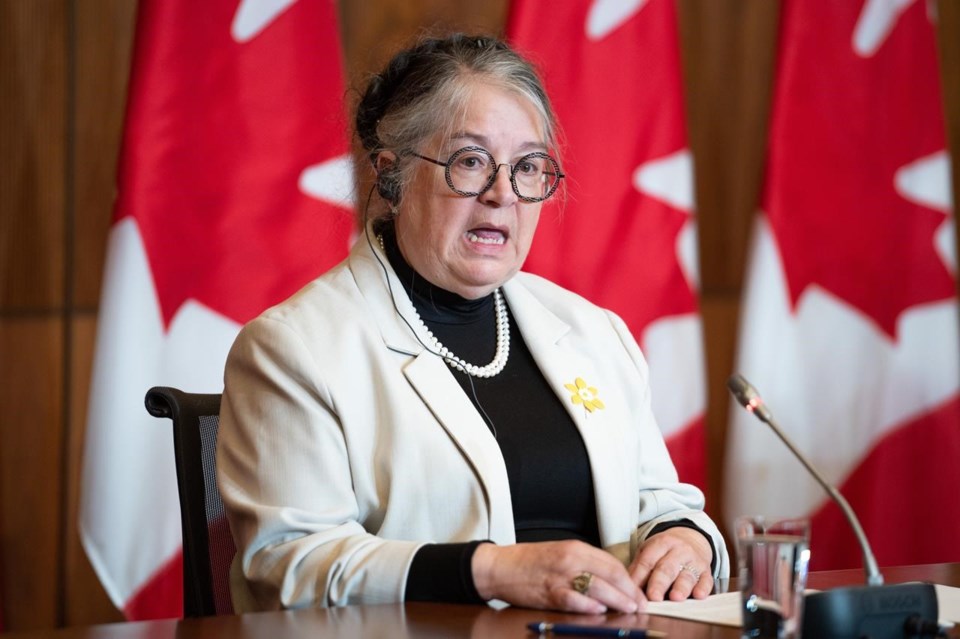HALIFAX — Canada's fisheries minister says she wants to shut down this year's lucrative baby eel fishery with only weeks to go before the season opens in the Maritimes.
But Diane Lebouthillier said Tuesday in a letter to fishers she won't make a final decision until Feb. 23, after she has consulted with licence holders and First Nations.
In the letter, the minister says the fishery should be shut down because illegal fishing in the past four years has led to a pattern of harassment, threats and violence on rivers in Nova Scotia and New Brunswick. As well, the poaching is jeopardizing conservation measures aimed at saving a threatened species, the American eel.
When these eels are very young and translucent, they are called elvers. In the spring, they migrate up coastal rivers in the Maritimes, where they can be easily caught in nets or buckets. The fishery started about 30 years ago, but it has grown as demand from Asia has increased.
They are typically sold live to aquaculture operations in China and Japan, where they are grown for food. Prices reached as high as $5,000 per kilogram in 2022, partly because sources in Europe and Asia have dried up.
In recent years, federal conservation officers in the Maritimes have received numerous complaints about organized crime, forcible confinement, trespassing, property damage, weapons offences and other threats to public safety as the poaching has increased, Lebouthillier said in her letter.
But she said these problems can be solved with new regulations covering Indigenous fishers, licensing, exporting and the tracking of legally caught eels. Her letter, however, makes it clear those changes will not be in place before the 2024 season starts.
"In the absence of these changes, it is highly likely that a 2024 season would follow the unacceptable pattern seen in recent years," she said.
"(It) is my view that it is not possible to have a safe and sustainable elver fishery in 2024, and therefore the fishery should not be opened."
The Fisheries Department released a statement later Tuesday saying it would conduct 10 days of consultations before the minister makes a final decision about this season.
Stanley King, spokesman for the Canadian Committee for a Sustainable Eel Fishery, said if Lebouthillier closes the fishery, the only ones who will suffer are fishers like him who obey the law. Poachers won't have to worry because the Fisheries Department doesn't have enough resources for proper enforcement, he said.
"It isn't going to help them police the fishery any better," King said in an interview Tuesday.
"(The minister ) had a choice to protect a safe and legal fishery with adequate enforcement … but she has allowed organized crime and foreign interests to steal our jobs … and up to $200 million of our natural resources through this illegal fishery every year."
In all, there are about 900 licensed Indigenous fishers and 200 licensed non-Indigenous fishers in Nova Scotia and New Brunswick.
In 2020, the fishery was closed when violence flared on coastal rivers in Nova Scotia and New Brunswick. And federal officials closed the season on April 15, 2023, when the department received more than 1,500 reports of unauthorized fishing, the minister said.
"The 2023 season was so mismanaged," said King. "There was gun violence, assaults and mayhem."
In December 2023, King told a House of Commons committee about the growing influence of organized crime and how Chinese buyers were allegedly involved in the illegal export of the fish.
As for Lebouthillier's comments about new regulations and a tracing protocol, King said his organization has been calling for those measures for a decade.
He said part of the problem is that the Fisheries Department has to tread carefully when it comes to Indigenous fishers asserting their treaty rights to earn a moderate livelihood.
"This is a hot-button topic (they) want to steer clear of," he said. "They don't want to define moderate livelihood."
This report by The Canadian Press was first published Feb. 13, 2024.
Michael MacDonald, The Canadian Press



